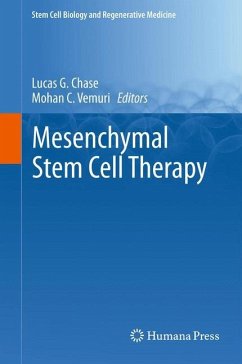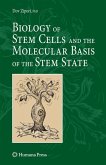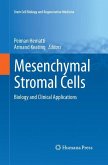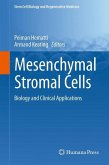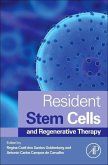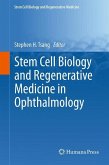Over the past decade, significant efforts have been made to develop stem cell-based therapies for difficult to treat diseases. Multipotent mesenchymal stromal cells, also referred to as mesenchymal stem cells (MSCs), appear to hold great promise in regards to a regenerative cell-based therapy for the treatment of these diseases. Currently, more than 200 clinical trials are underway worldwide exploring the use of MSCs for the treatment of a wide range of disorders including bone, cartilage and tendon damage, myocardial infarction, graft-versus-host disease, Crohn's disease, diabetes, multiple sclerosis, critical limb ischemia and many others.
MSCs were first identified by Friendenstein and colleagues as an adherent stromal cell population within the bone marrow with the ability to form clonogenic colonies in vitro. In regards to the basic biology associated with MSCs, there has been tremendous progress towards understanding this cell population's phenotype andfunction from a range of tissue sources. Despite enormous progress and an overall increased understanding of MSCs at the molecular and cellular level, several critical questions remain to be answered in regards to the use of these cells in therapeutic applications. Clinically, both autologous and allogenic approaches for the transplantation of MSCs are being explored. Several of the processing steps needed for the clinical application of MSCs, including isolation from various tissues, scalable in vitro expansion, cell banking, dose preparation, quality control parameters, delivery methods and numerous others are being extensively studied. Despite a significant number of ongoing clinical trials, none of the current therapeutic approaches have, at this point, become a standard of care treatment. Although exceptionally promising, the clinical translation of MSC-based therapies is still a work in progress.
The extensive number of ongoing clinicaltrials is expected to provide a clearer path forward for the realization and implementation of MSCs in regenerative medicine. Towards this end, reviews of current clinical trial results and discussions of relevant topics association with the clinical application of MSCs are compiled in this book from some of the leading researchers in this exciting and rapidly advancing field. Although not absolutely all-inclusive, we hope the chapters within this book can promote and enable a better understanding of the translation of MSCs from bench-to-bedside and inspire researchers to further explore this promising and quickly evolving field.
MSCs were first identified by Friendenstein and colleagues as an adherent stromal cell population within the bone marrow with the ability to form clonogenic colonies in vitro. In regards to the basic biology associated with MSCs, there has been tremendous progress towards understanding this cell population's phenotype andfunction from a range of tissue sources. Despite enormous progress and an overall increased understanding of MSCs at the molecular and cellular level, several critical questions remain to be answered in regards to the use of these cells in therapeutic applications. Clinically, both autologous and allogenic approaches for the transplantation of MSCs are being explored. Several of the processing steps needed for the clinical application of MSCs, including isolation from various tissues, scalable in vitro expansion, cell banking, dose preparation, quality control parameters, delivery methods and numerous others are being extensively studied. Despite a significant number of ongoing clinical trials, none of the current therapeutic approaches have, at this point, become a standard of care treatment. Although exceptionally promising, the clinical translation of MSC-based therapies is still a work in progress.
The extensive number of ongoing clinicaltrials is expected to provide a clearer path forward for the realization and implementation of MSCs in regenerative medicine. Towards this end, reviews of current clinical trial results and discussions of relevant topics association with the clinical application of MSCs are compiled in this book from some of the leading researchers in this exciting and rapidly advancing field. Although not absolutely all-inclusive, we hope the chapters within this book can promote and enable a better understanding of the translation of MSCs from bench-to-bedside and inspire researchers to further explore this promising and quickly evolving field.

